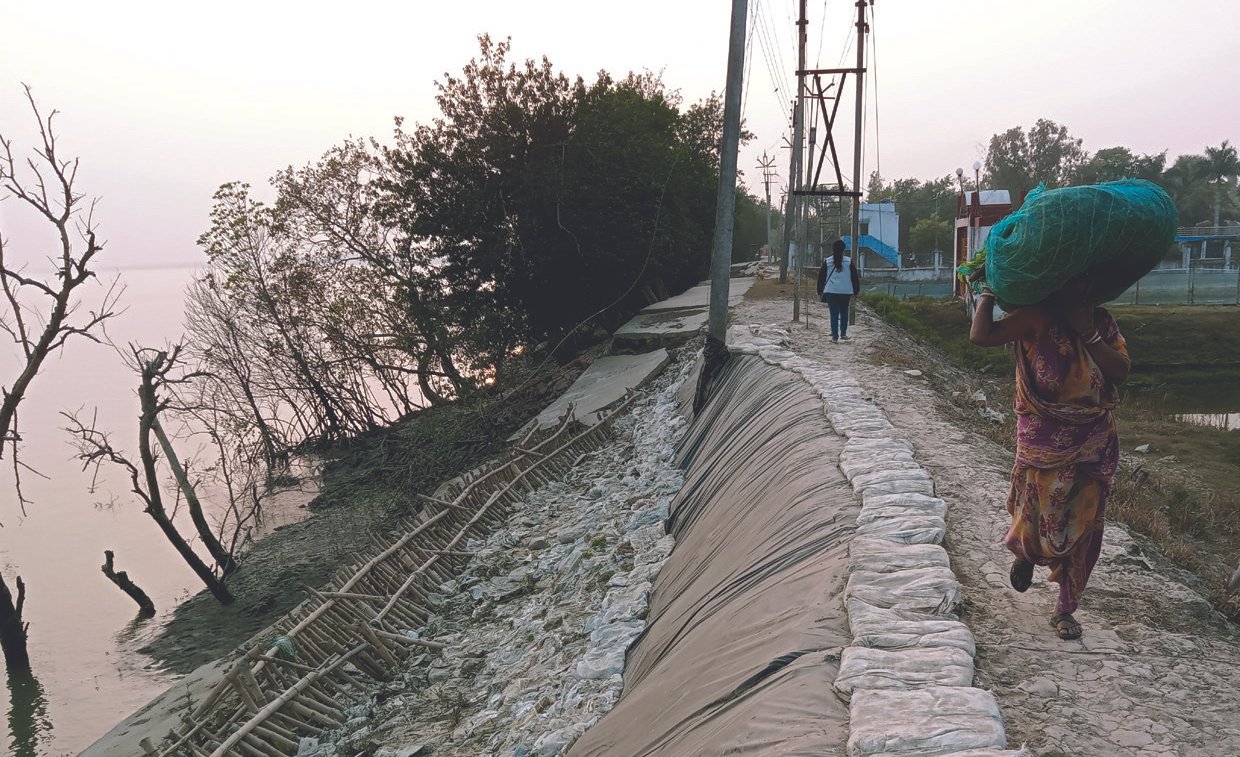
Call to Action
Delta community health and wellbeing

“Develop delta infrastructure and sustainable agricultural systems to enhance the health and wellbeing outcomes of delta dwellers.”
Why this is important
Poorly maintained infrastructure e.g. embankments lead to inundation and salinisation adversely affecting the livelihoods, health, and hygiene of delta communities (especially women and girls).
Due to the lack of predictable and sustainable food resources, delta dwellers display higher rates of wasting, malnutrition and stunting, particularly in children.
Commercial brackish water aquaculture leads to increased salinity of soil and reduced productivity of agricultural land.
Increasing forest dependence in the Sundarbans is leading to increased human-animal conflicts including a documented rise in tiger attacks.
The above challenges combine to make it harder for delta communities to maintain their livelihoods. The result is an observed increase in out-migration, especially by youth and men, along with the societal challenges this brings.
Priorities and steps
Researchers, local, regional and national governments agencies, civil society organisations, private sector actors, health organisations and local communities should work together to:
Emphasise more sustainable agricultural and aquaculture practices involving mangrove protection and restoration and work with local communities to ensure these practices are viable for them.
Establish schemes for effective maintenance of critical infrastructure including embankment and dikes prioritising most-at-risk areas.
Consider women’s and girls’ specific needs in any community health initiatives and work with communities to better understand the root causes of out-migration.
Want more information?
Click on our Outputs web page here to access more information about what we do and who we work with via a series of informal blogs and other resources, videos, books and booklets and policy briefs. Here you can also easily access our Hub publications in academic journals as well as a series of mid-project case studies.
